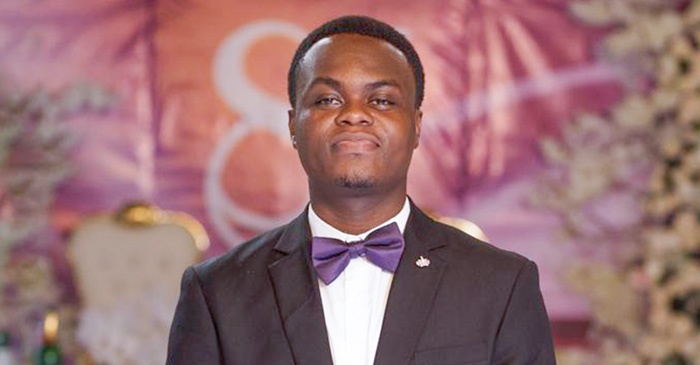Being a Pastor’s Kid (PK) is a unique journey—one wrapped in both spiritual privilege and personal pressure. Often admired, watched, and even idealized, PKs grow up under the constant gaze of the church and society. While the intention may often be good, it’s easy to forget that they too are young people—growing up, learning, and evolving like everyone else. The pressure to “get it right” all the time can be overwhelming.
The Pressure to Succeed and the Neglect of Personal Voice
Pastor’s Kids are frequently expected to embody spiritual perfection. They are often told, directly or indirectly, that they must live above reproach, serve flawlessly, and make no mistakes—because they are “representing” their pastor-parent and, by extension, God. This pressure to succeed, whether spiritually, academically, or socially, can become an emotional burden.
Sadly, in this pursuit of perfection, one crucial truth is often ignored: PKs are individuals with personal callings, choices, and voices. Like every child, they deserve the freedom to explore their identity, ask questions, and even fail without being labeled as “rebellious”.
The Bible reminds us in Deuteronomy 30:19: “I have set before you life and death, blessings and curses. Now choose life…”, This implies that God values our ability to choose. But many PKs grow up having most of their choices—what they wear, who they befriend, what career they pursue—made for them or judged harshly. Their individuality is often lost in the shadow of their parent’s calling.
The Bible does not shy away from discussing the lives of ministers’ children. Eli’s sons, Hophni and Phinehas (1 Samuel 2:12), despite being raised in the temple, turned away from God. Samuel’s sons also did not follow his ways (1 Samuel 8:1-3). These stories highlight that even children raised in godly environments must make their own decisions—and are not immune to personal struggles.
On a more positive note, we see Timothy, mentored by Paul, who was deeply grounded in faith thanks to his mother and grandmother (2 Timothy 1:5). Though his father was not Jewish, the spiritual support he received prepared him for ministry. This example shows that with the right guidance, love, and discipleship, PKs can grow into impactful leaders—not through pressure, but through process.
The Church’s Role in Raising PKs
The church plays a pivotal role in the upbringing of a PK. Rather than holding them to impossible standards, church members must show grace, empathy, and understanding. Galatians 6:2 teaches: “Carry each other’s burdens, and in this way you will fulfill the law of Christ.” PKs carry burdens silently—often lonely in a crowd. The church can help by mentoring them, listening without judgment, and allowing them space to grow in their walk with God at their own pace.
Instead of expecting them to “have it all together,” the church should stand beside them, recognizing that they are not called to be perfect, but to be loved, guided, and nurtured.
Society’s Responsibility in Shaping PKs
Outside the church, PKs also face societal pressures. Teachers, friends, extended family, and even strangers may impose expectations on them. Every word and action is scrutinized. “You should know better—you’re a pastor’s child” is a phrase they hear too often.
But society can do better. By seeing PKs as young people who are learning and growing, and not as moral mascots, society can positively shape their development. A kind teacher, an understanding friend, or a wise elder can offer the kind of affirmation and perspective that helps PKs build confidence in who they are, not just who they are expected to be.
A Privilege, Not a Personal Choice
Being a PK is not a choice—it is a calling, a great privilege. Like Jeremiah, who was called before he was born (Jeremiah 1:5), many PKs are born into a sacred space. They hear sermons in the womb, attend church before they can walk, and often pray before they fully understand the meaning of the words. This exposure to them, is a privilege, not because it elevates them above others, but because it positions them close to God’s work.
But we must remember: Even Jesus had to grow. Luke 2:52 says, “Jesus grew in wisdom and stature, and in favor with God and man.” Growth is a process—even for the Son of God. PKs, too, must be allowed to grow, question, and mature. The privilege of their position should never override their process of becoming.
Struggles Behind the Smiles
When it comes to everyday life, PKs often face quiet struggles. Choosing a career that isn’t ministry-related may attract criticism. Wanting a social life may be viewed as being “worldly.” Choosing a life partner becomes a deeply scrutinized affair. Even choosing their subjects in school or deciding not to participate in a church activity can be met with judgment rather than curiosity or care.
Their freedom to dream, explore, and express is often stifled under the weight of “you are the pastor’s child.”
A Shared Responsibility
In conclusion, the role of a PK is sacred, but they are not superheroes – they are human. And while it is a privilege to grow in such proximity to God’s work, the church and community must play a greater role in nurturing, mentoring, and empowering them. Not with pressure, but patience. Not with expectation, but with encouragement.
Let us receive and raise Pastor’s Kids to become the best versions of themselves—not because of the title they bear, but because of the God who loves them.
The Pastor’s Kid (PK) is not just a title. It’s a soul. Let’s nurture them with love and grace.
Written by Gideon Wortey Narh, C.O.P PKS Welfare Chairman


















